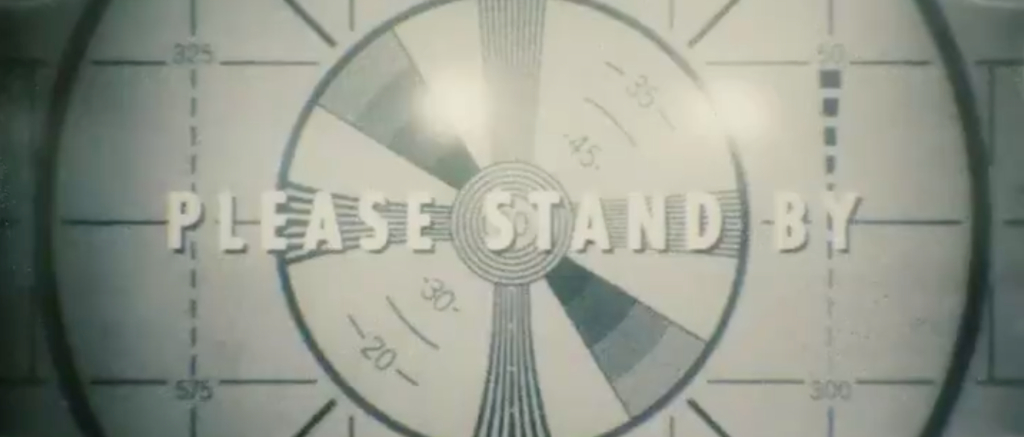
The RX is Uproxx Music’s stamp of approval for the best albums, songs, and music stories throughout the year. Inclusion in this category is the highest distinction we can bestow, and signals the most important music being released throughout the year. The RX is the music you need, right now.
Blimes Brixton and Gifted Gab never expected their success to arrive as a result of teaming up as a duo. To hear the two outstanding MCs tell it, a tag-team membership was never in the plans for either. But just like another rap partnership that eerily mirrors their own, they have turned out to be far more appealing to a mass audience as a tandem, like Gary Payton and Shawn Kemp, the superstar Seattle Supersonics duo of the ’90s that Gab grew up idolizing.
The irony — and the comparisons — aren’t lost on them, but they don’t see the big deal. “Being from San Francisco, it was a big culture shock to travel the world and the country and to see that people were so segregated,” Blimes admits. “It’s normal to us. It is a no-brainer. She spits her ass off. People say I spit my ass off. Let’s both spit our asses off together and see what happens.”
The two rappers, Blimes from San Franciso and Gab from Seattle, got the first glimpse of the potential of their group dynamic when their 2018 single, “Come Correct,” went massively viral. The combination of boom-bap sensibilities, cocksure braggadocio, and the yin-yang dynamic of their approach — Blimes, brusque and punchy, Gab, slick and smooth, and of course, the obvious visual contrast between them — made them an instant fan favorite, prompting them to formally establish a partnership and begin work on a joint album.
That album, Talk About It arrived last Friday after a 2019 that saw both release incredibly entertaining solo albums and slowly build a buzz that included placements on HBO’s Insecure and an extended social media promo campaign billing them as hip-hop’s new favorite “aunties.” Despite the quality of their solo material, it was evident throughout the buildup that the real anticipation was for Talk About It, providing more proof that their lyrical alchemy could produce more than the sum of its parts.
And it has. The versatile album’s sounds span far beyond the established “real hip-hop” of their debut single, encompassing the joyful bop “Feelin It,” the synthy, ’80s-inspired pop-funk of “Shellys (It’s Chill),” the throwback hyphy sound of “Un Deux Trois,” and the spacey slow groove of “My Way.” Along the way they’re joined by both contemporaries like IAMSU and Jay Park, and established vets Method Man and Bahamadia (they brought back Bahamadia, y’all!). But the main attraction is the covalent bond between the two charismatic, unapologetic stars and their Big Auntie Energy.
Over the phone with Uproxx, they broke down the evolution of their sound, the tribulations of being women in the music game, what it’s like to watch their plans evolve to fit the fan demand for more of their united sound, and of course, life in quarantine.
What have you guys been up to in the COVID universe with the zombie apocalypse outside?
Blimes: Hella digital performances, hella digital takeovers. A lot of platforms and companies have been really active in keeping up their engagement with their viewership, which was dope to start off. We were honored to be like included in a lot of those, but we only got one offer for payment. And that was from another music artist. Another music artist came out of her own pocket to bread us out to play a digital Fest. And then you’ve got these bigger platforms that weren’t doing it.
As independent artists, how has this time affected your income and your workflow? What are you doing to compensate?
Blimes: It definitely gave people, including me, a lot of time to think. Once the world stops, there’s nothing else to do. I wish that I was hella creative during this time. I’ve done some stuff but there’s been no inspiration. There’s really nothing to get inspiration from. ‘Cause I’m just looking at the same four walls all fucking day.
Gab: We’ve had to be imaginative and, honestly with the live show stuff that hasn’t been supplemented, there hasn’t been something that’s come in and held the place of live show income. So that’s been a big challenge. We’ve had to explore other avenues. Luckily we did enter a partnership right as COVID started. We entered a partnership with Zync (a song licensing company). We were able to establish some placements on our own, which helped us get some footing for establishing a Zync deal.
What were some of those?
Gab: The Insecure placement came before the deal. “Hot Damn” is in the new RZA movie coming out whenever it comes out, with Shameik Moore — the man of the hour [Moore recently caught flak online for ill-timed tweets that seemed to blame victims of police brutality]. Placements have luckily started to supplement the loss income from live shows, but getting creative with it and figuring out where to shift our energy has been vital.
People have been aware of you since “Come Correct,” but now you have “Feelin It” on Insecure and things like that. How has the buzz changed or picked up since?
Blimes: When people start to notice us, and when people start to check for us, it feels really gratifying and fulfilling because we’ve known that this would happen. I think Gab and I knew that people needed to know who we were for a long time. And people always told us individually, “Man, y’all need to blow up.” we never knew that the vehicle for that would be forming a group. Neither of us expected this — it wasn’t on our vision boards.
But that was the key, that was the amplification. It was us getting together, that turned into this giant vehicle for the rest of the world to see us and hear about us. Because when people look at us, they want to talk about it. They’re like, “Why are these two together? How did these two get together? This is an odd pair.” And that’s why we went with the album named Talk About It. ‘Cause we make people talk about it.
Let’s talk about Talk About It. I think that it’s going to surprise a lot of people if they know you from “Come Correct.” You guys are not doing the boom-bap, underground, backpack, rappity-rap sh*t the whole album. What was the driving impulse behind the musical evolution? What do you expect to surprise people?
Gab: I think the album has like a great mix of shit. It’s really a cohesive album and it has like something for everybody, we even tied it together with skits. So you have like hella different elements. You get to see our personality. You get some comedy and you get some dance cuts, you get some rappity-rap cuts. You have some cuts over singing. There’s a whole lot going on. You’d have to find something in that album that you fuck with, but there’s no way you wouldn’t.
Blimes: I think through that it hella shows our influences. Gab grew up singing in the church and you can hear that practice throughout the album. You can hear the harmony throughout the album. My dad is a blues musician. My grandfather is a jazz musician. You can hear the musicality, the importance of the musicality that we both grew up with throughout the album. And then you got the influences of Golden Era boom-bap rap that we grew up on. You got Bahamadia on the album, you got Method Man on the album. But we also showed them what we’re capable of. That we’re not just some old heads and that we are capable of making music that’s current. Because I feel like a lot of artists don’t walk the line they’re on one side or the other and they stay on one side or the other.
Especially because it’s been so apparent to us that women in this industry have to work to gain the respect that men have off rip.
Talk about it!
Blimes: Women have to work 10 times as hard. So basically we were like we’re going to make this album and be like, “What else do you want us to do?” You say, “Jump,” we say, “How high?” Pay us some fucking respect.
So about that “odd couple” pairing. While I was researching for this interview, a Google glitch caused an Uproxx article about you to pop up with a Run The Jewels pic and headline. I actually interviewed them recently and they also spoke about being called an odd couple because they’re one white guy, one Black guy. Of course, you guys mirror that, but it’s even deeper because I know Blimes is queer as well and I’ve seen you guys field fan questions about that. How do you guys navigate that dynamic, especially in the current climate?
Gab: I mean, it’s not anything out of the norm for us. I’m of mixed race. My dad is white. My mom is Black. So it’s not a strange, foreign concept to me. It’s kind of hard for me to speak on because it’s just so normal. From the outside looking in, yeah, I get the “odd couple” appeal and the differences between us. But it isn’t outside the realm of what I’m used to. And Blimes and I are both from hella diverse cities — with her being from San Francisco and me being from Seattle. All we know is hella diversity. So this is also another representation of who we are and where we come from.
Blimes: Being from San Francisco, it was a big culture shock to travel the world and the country and to see that people were so segregated. And to see people’s reactions to Gab and I working together and be like, “Wait, so how did this happen? This doesn’t make sense,” was a shock because like Gab said, it’s normal to us. That’s my sis. She spits her ass off. People say I spit my ass off. I trust them on that. So yeah, we should link up. Let’s both spit our asses off together and see what happens. So that made sense.
Gab and I have always had this habit of talking to each other about stuff that comes up for us. It’s just not letting things fester, not letting things boil over, and if we’re seeing differently on a point, if we’re seeing differently on something in the studio, we talk about it — even if we don’t talk about it that day, even though being direct isn’t the easiest thing in the world for somebody that you’re getting to know.
We do have a good practice and a good habit of talking to each other about stuff that comes up, whether it be what’s going on, what’s coming up for us in terms of different communication styles because of our culture, or whether I’m feeling insecure about a joke that I made. Maybe I felt like it was insensitive, and I’m like, “Yo, what’s up, Gab? Did that hit you a certain way?” And she’s like, “No,” and we talk about it. Or Gab’s like, “Hey, let me do this part of the song, or let me do that part.”
And Gab is continually proving that she’s an ally for the gay community. She’s the best cheerleader. She’s so welcoming of all our gay fans and so comfortable. There’s no question of whether or not she’s down for the fight for LGBT rights, and I would think that she would say the same thing about me when it comes to the race conversation.
Let’s come back to how the industry can be harder for women. Between recent situations with Noname and Doja Cat and of course, how Cardi B and Nicki were pit against one another for so long, it seems like there are just more challenges because there aren’t as many women — especially women who don’t look a certain way or fit the “industry standard.”
Blimes: Part of our success has been from staying true to ourselves, and we both feel really strongly about staying true to ourselves. We both feel really strongly about dressing the way we want to dress, being comfortable, and sometimes that’s sexy. Sometimes that’s feminine. Sometimes that’s tomboy. Sometimes that’s comfortable. We know that there’s so many standards placed on women, and we really, really, really, really want to go against the external standards. You’re not going to tell me how to dress. You’re not going to tell me how I need to show up. I am the gatekeeper of my own personal comfort. I’m the gatekeeper of my own personal style. And so that’s really important to us in terms of being women. That’s not to shit on any of the women that feel that they have to adhere to the standards.
And it seems like you’re held to a higher standard. If you slip up, that’s it. I don’t really believe in “cancel culture” but it seems like women are just subject to so much stronger criticism.
Blimes: I feel like Gab has a great example of this happening to her. And if she’s willing to share about it, I think it’d be really powerful.
I think I know where this is going. It’s a prime example of double standards.
Gab: It definitely is. We did one of those email interviews for a publication, and one of the questions, they were like, “Gab, we wanted to know…” Basically they asked about my name, and they were like, “Did you ask the OG for his permission?” [Bay Area rapper Gift Of Gab, of the group Blackalicious] The way they were asking was very clearly condescending, like, “Do you know that your name is very similar to his, and did you ask if it was okay to use that name?”
For one, it’s literally my name. My name is Gabrielle. I have to ask someone permission to use a name that’s mine? What are you talking about? And furthermore, I know who the person is. And even further than that, the person whose name it is knows me and is a fan of my work and is okay with it. So if he’s okay with it, why are y’all so upset about it?
Are you asking other artists with similar names that same question? If you interview ASAP Rocky, are you going to ask him, “So did you ask Aesop Rock his permission to use that name?” No, you’re not going to ask no other male rapper or nobody that question in that tone anyway, so why would you choose that with me — and to think that I’m going to just bow down to it or give a cutesy answer? No, I didn’t fucking ask to use somebody’s name, and why are you even asking me that question anyway? Whose side are you on? What is this even for?
Blimes: Exactly. We’re quicker to get canceled, takes way longer to gain the respect. Obviously, we have high hopes for this album, but I wouldn’t be surprised if there’s a bunch of men who are like, “I don’t know. I’m going to need them to prove it more on the second one. We’re going to have to see what they do with the second one.”
From my perspective, y’all have nothing left to prove. And I’m really hoping for the best for you guys.
Gab: Hell yeah.
Talk About It is out now via B.A.G. Enterprises. Get it here.

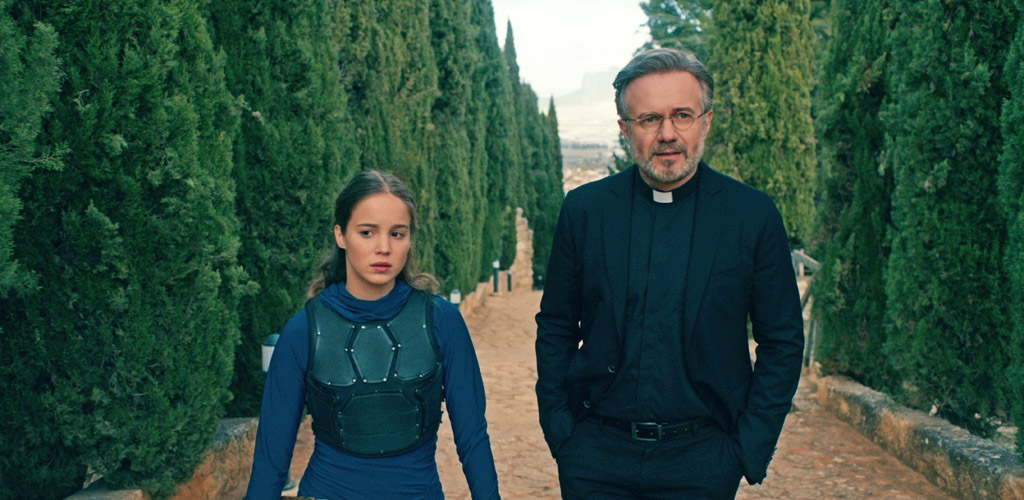
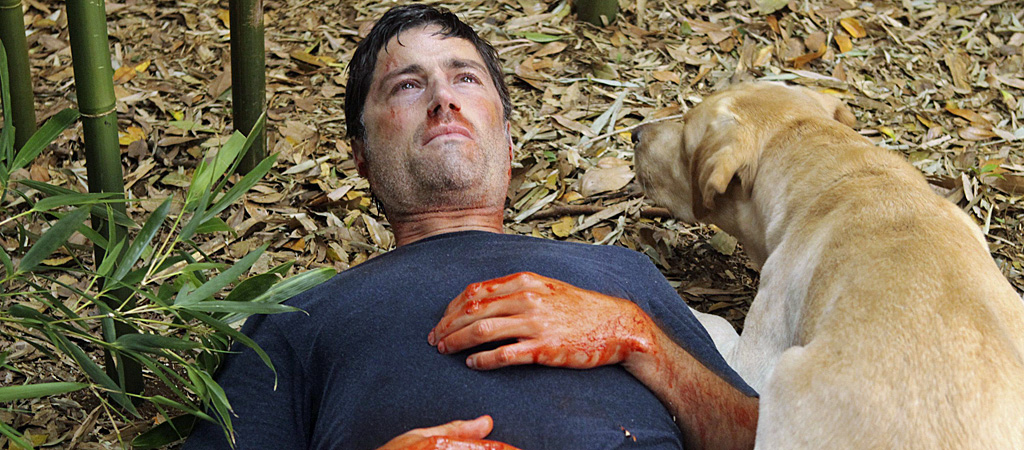
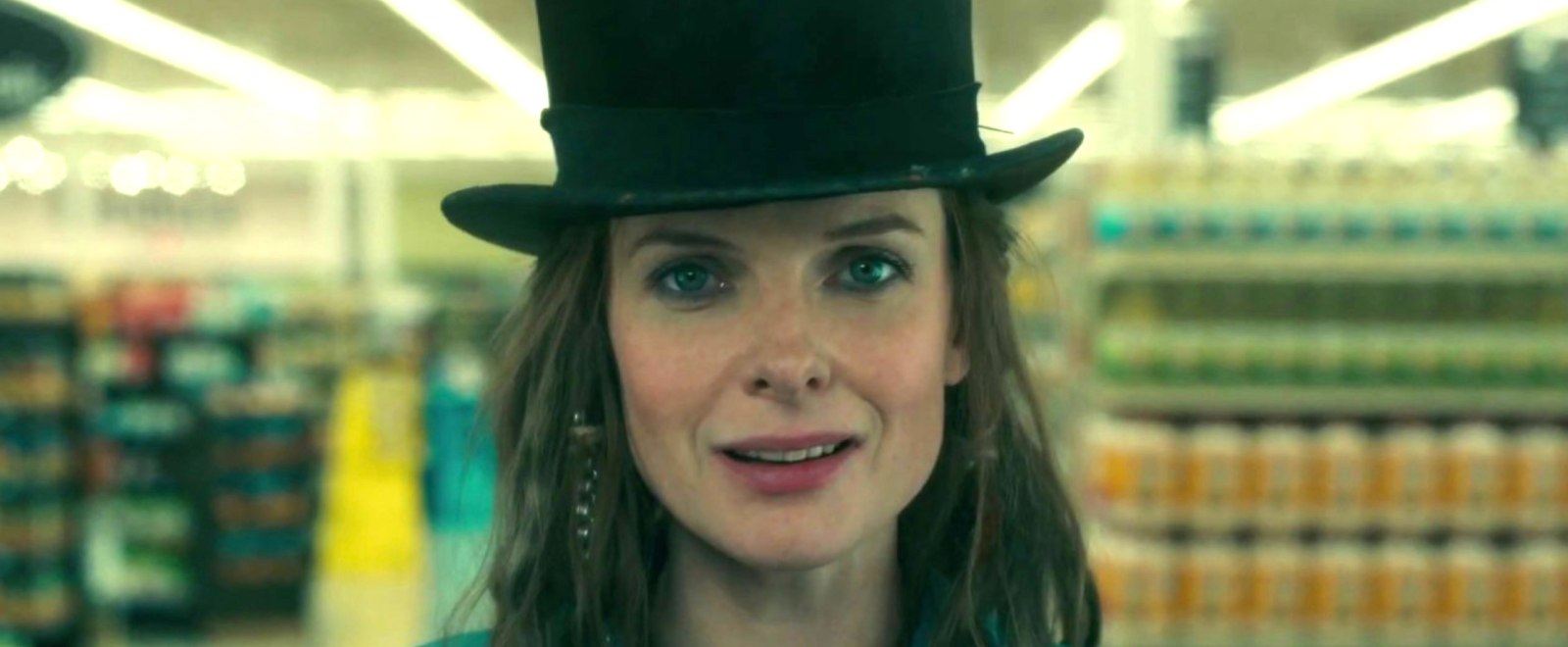
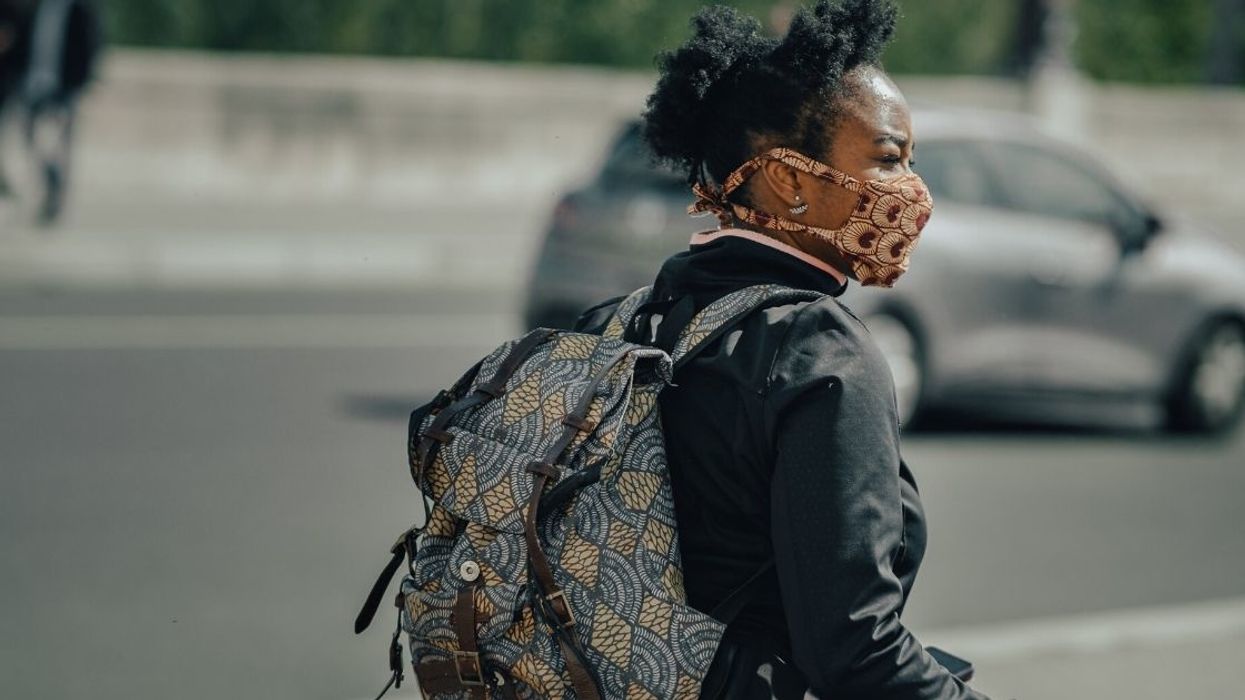



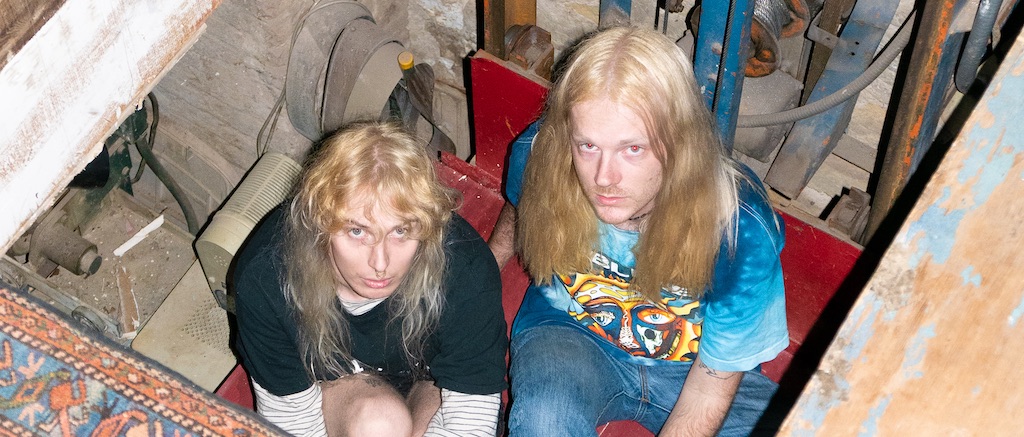
 ..
..

 …
…  ..
..